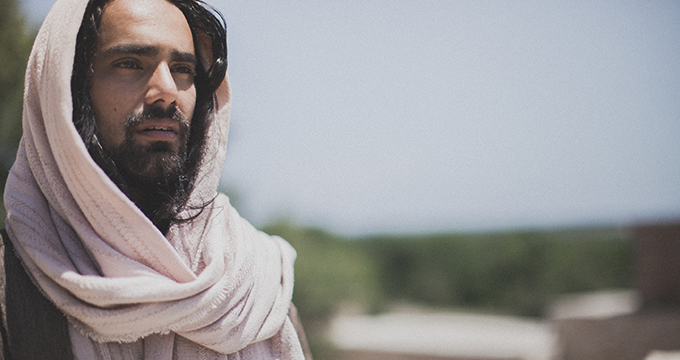
Friends,
Thank you so much for the outpouring of kindness and generous support this week. It’s humbling to know that so many of you care. It means more to me than I could ever put into words.
I pray that, in turn, God will bless you greatly.
Darlene Schacht,
The Time-Warp Wife
This post contains affiliate links

Hebrews Bible Study: Jesus Christ: King, Redeemer, High Priest
Below is everything you need to get started on this 4-week Bible study on the book of Hebrews. ** Make sure to scroll all the way down to find the free resources. **
This is our final week in the study of Hebrews, and so this week instead of three chapters, we have four.
Below you’ll find a list of questions that are designed to get you thinking and digging. I’ve also provided some tidbits of information that I’ve gleaned while studying this book. You’ll find these in the “Did you know…” sections. In addition to this, you’ll find a challenge e, and a memory verse for this week.
Some readers have asked if there is a printable study guide available. Unfortunately, there isn’t for this one. There is a study guide available at Amazon.com (Click here). For those who prefer a free version, I have provided the questions for the study here on the blog.
Last but not least, I’ve been working on a collection of printable scripture/encouragement cards. These beautiful cards can be printed off and used in a number of ways–use them as note cards,
Scroll down the page to find all of these resources.
On Friday I’ll post my answers to the questions for each chapter, so make sure that you come back on Friday for that. If you would like to share your thoughts on the study, you can do so in the comment section below.
Subscribe so you don’t miss a post.
How do I participate in this study?
If you haven’t done so already, you can purchase a copy of the study guide at Amazon. Click here.
If you don’t want to purchase a study guide, you don’t have to. Everything you need for the study is provided for you in the links above.
During the week, you’ll study at home, following the outline of the study guide. You can study alone or with a group of friends–well suited for either.
ONLINE RESOURCES:
These are my favourite online Bible study tools!
Bible Gateway – Every version you can imagine is online
Matthew Henry’s Commentary on the Whole Bible
Looking for an easier commentary? Here’s the Concise Version
Other commentaries you might preferInterlinear Bible – I love this one!
Blue Letter Bible – Dig into the Hebrew and Greek
Bible Word Search
Hebrews Bible Study: Jesus Christ: King, Redeemer, High Priest
Available now at Amazon.com
- Study questions for each chapter
- Interesting facts and background information
- Study Tips
- Pretty illustrations
- And more…
[su_button url=”https://amzn.to/2Ibe34z” target=”blank” background=”#ef2d38″ color=”#ffffff”]BUY NOW[/su_button]
Chapter 10 – The Final Sacrifice

Verse 1 says that the law was only a shadow of good things that are coming. What does that mean?
Why was it necessary for the sacrifices to be made year after year?
[su_box title=”Did you know…” style=”soft” box_color=”#969494″ radius=”5″]Since the destruction of the temple in 70 AD, this annual ceremony can no longer be performed by the high priest. There is no temple, and therefore there is no ceremony for Yom Kippur (The Day of Atonement). So, what is God doing here? Either He’s taken away the ability to atone for the sins of the people, or He’s provided a much better sacrifice that atoned for our sin once and for all. [/su_box]
What is the holy sacrifice of the new covenant?
Why is it no longer necessary to have annual sacrifices made on our behalf?
What four things are we instructed to do in verses 23-25?
What is the penalty for those who willfully reject God, trample the Son of God underfoot, and insult the Spirit of Grace?
[su_box title=”Did you know…” style=”soft” box_color=”#969494″ radius=”5″]Hebrews 9:7 tells us that the high priest went into the Holy of Holies every year to make sacrifices for the “ignorant sins” of the people. The deliberate or willful sin we read about in this chapter is more than a conscious awareness of sin or weakness that leads to sin, it’s unrepentant rebellion against God’s laws. John MacArthur writes, “Willfully (Hekousios) is habitual. It not only is deliberate but is an established way of thinking and believing. It is the permanent renunciation of the gospel, the permanent forsaking of God’s grace.”
If we are willfully sinning, we’re not walking according to the Spirit of God. The question then is this: have we ever really made that decision to follow Christ? Or could it be that we said one thing, yet lived contrary to the promise we made?[/su_box]
What are some of the hardships that the Hebrews experienced in the early church? See verses 32-34.
Chapter 11 – The Wall of Faith

What is faith?
[su_box title=”Did you know…” style=”soft” box_color=”#969494″ radius=”5″]Although we aren’t certain why Abel’s sacrifice was better than Cain’s, one theory is that Abel offered a blood sacrifice, while his brother Cain offered fruit. A blood sacrifice has always illustrated an awareness of sin and a willingness to repent. Another theory however, one I tend to lean more toward, is that Cain brought “some of the fruit” while Abel brought fat portions from “some of the firstborn” of his flock. I think this theory makes more sense because as we read in Genesis Chapter 4, Cain was a farmer, and Abel kept flocks and so they would naturally bring those offerings to the Lord. It wasn’t Cain’s offering itself that was the problem, it was his lack of faith. Here’s the thing: Abel brought the “firstborn” of his flock. In other words, he put God first. He gave God his best. He was willing to give God the first born of the flock, because he had faith that God would provide again and again.
During Old Testament times, the first fruit of the season, also referred to as “bikkurim,” were set apart. The way that a farmer would designate the first fruit was by tying a reed to it the moment it came to fruition. This allowed the farmer to recognize the first fruits upon harvest, and to designate them for the Lord.
“Not as Cain, who was of that wicked one, and slew his brother. And wherefore slew he him? Because his own works were evil, and his brother’s righteous.” – 1 John 3:12[/su_box]
According to verse 6, what are two things every Christian must believe?
James 2:20 tells us that faith without works is dead. In what ways did Noah and Abraham’s work illustrate their faith?
[su_box title=”Did you know…” style=”soft” box_color=”#969494″ radius=”5″]Hundreds of years after Abraham brought Isaac to the altar on Mount Moriah, King David purchased the property from Ornan the Jebusite. Later his son Solomon built the Temple on that very same spot. To this day the land is one of the most contested pieces of real estate on the face of the earth.[/su_box]
According to Verse 13, what two things do all of these people have in common? Can you give two examples?
By faith, Jacob blessed each of Joseph’s sons. What were their names?
According to this chapter, how did Moses and his parents illustrate their faith?
[su_box title=”Did you know…” style=”soft” box_color=”#969494″ radius=”5″]In Exodus 2, Moses was afraid. He thought that Pharaoh might kill him and so he fled to Midian. This same man came back 40 years later to boldly lead God’s people out of Egypt. In Hebrews 11:27, we see a faithful and brave man who was walking by faith.[/su_box]
When and how did Moses keep the first Passover?
[su_box title=”Did you know…” style=”soft” box_color=”#969494″ radius=”5″]After leading the Israelites through the desert for 40 years, Moses was forbidden from entering the promised land. The Lord led him to the top of a mountain in Moab where he was shown the land from afar before he died.[/su_box]
[su_box title=”Did you know…” style=”soft” box_color=”#969494″ radius=”5″]The prostitute Rahab mentioned in Verse 31 was the mother of Boaz and the great-grandmother of King David. This goes to show us that regardless of where we have been or what we have done, God is able to use us in powerful ways.[/su_box]
Who were the women who received back their dead? See 1 Kings 17:17-24 and 2 Kings 4:8-37.
According to verses 35-38 what are some of the ways believers were persecuted for their faith?
Chapter 12 – Running the Race

Who is the great cloud of witnesses mentioned in Verse 1?
Verse 1 says to lay aside every “weight” and “sin” that easily besets us. What is the difference between the two?
[su_box title=”Did you know…” style=”soft” box_color=”#969494″ radius=”5″]The Greek word for “race” in Verse 1 is “agon” (Strong’s G73). The original word was a place of assembly where Greek’s met to watch sporting games such as the Olympics. And so, the word encompasses the struggle between the Spiritual and the physical world where believers struggle against temptation and run the race set before them.[/su_box]
What lesson can we glean from verses 2-4?
What else can we learn about patience through suffering from Romans 5:3-4?
[su_box title=”Did you know…” style=”soft” box_color=”#969494″ radius=”5″]The word for “chastisement” in this chapter comes from the Greek word “paideia” (Strong’s G3809) which is defined as “the whole training and education of children (which relates to the cultivation of mind and morals).”[/su_box]
What does this chapter teach us about the chastening of God, and the trials we experience?
[su_box title=”Did you know…” style=”soft” box_color=”#969494″ radius=”5″]The Greek word for “exercised” in Verse 11 is “gymnazo.” (Strong’s G1128) This word is interesting in that both of definitions of the original word are packed with power. The first definition is to exercise naked, like a gymnast who is stripped of any clothing that could potentially weigh him down. According to Forbes Magazine, some ancient Greek Olympians did indeed exercise naked. The point however, is the idea of laying aside every weight in order to run the race well. The second definition is vigorous exercise. It’s more than doing a few push-ups each day. It’s pushing yourself to give all that you have. [/su_box]
What is another reason that God allows us to go through difficult times? See 2 Corinthians 1:3-7.
“In the Christian life we have a means. That means is steadfast endurance. The word is “hupomone” which does not mean the patience which sits down and accepts things but the patience which masters them. It is not some romantic thing which lends us wings to fly over the difficulties and the hard places. It is a determination, unhurrying and yet undelaying, which goes steadily on and refuses to be deflected.” – William Barclay
Chapter 13 – Outside the Camp

What 8 things is the church reminded to do in verses 1-9?
[su_box title=”Did you know…” style=”soft” box_color=”#969494″ radius=”5″]Hospitality is often mentioned in the Bible because of its importance in the early church. Hotels were not as we know them today. Yes; inns existed, as we see in the story of the Good Samaritan, however, according to the Mishnah they had bad reputations, and innkeepers could not be trusted. Therefore, it was important for Christians to open their homes, entertain strangers, and welcome travelling missionaries. (see http://bibleresources.americanbible.org/resource/inns-and-innkeeping)[/su_box]
Verse 12 says that Jesus suffered outside the city gate. What does that mean?
[su_box title=”Did you know…” style=”soft” box_color=”#969494″ radius=”5″]On the annual Day of Atonement, the remains (including the hides, the flesh, and the intestines) of both the bull and the goat that were sacrificed for the sin offering and whose blood was brought into the Holy of Holies, were taken outside the camp to be burned. [/su_box]
What does Verse 13 mean, when the author says to go with Christ outside the camp?
[su_box title=”Did you know…” style=”soft” box_color=”#969494″ radius=”5″]“Outside the camp” can best be understood when we consider scripture like that found in Numbers chapter 12. Because Miriam opposed Moses and disgraced God, she was sent outside the camp for 7 days. When Jesus was rejected by the Jews, He was sent outside the camp both literally and figuratively bearing His disgrace. Here the author was telling the church that they were stepping away from institutional Judaism and as a result would bear the disgrace. For us, going outside the camp with Christ is a step out of our comfort zone. It’s a step away from the traditions and comforts of this world to a place of sacrifice where we lay down our lives for the sake of the gospel. [/su_box]
What is a sacrifice of praise?
What is a sacrifice in the context of Verse 16?
Why is it important to submit to our spiritual leaders?
That’s all for today. I’ll see you on Friday for part 2 of week 4.
Considering a gift to Time-Warp Wife Ministries? Click here to donate.
THIS WEEK’S CHALLENGE
Consider the choices that you make this week. Are you bearing the reproach of Christ, or are you simply following the crowd because it’s the easiest path? Be intentional about the choices you make. Step away from the camp if you must.
BIBLE VERSE
Let us go forth therefore unto him without the camp, bearing his reproach. – Hebrews 13:13
Scripture/Encouragement Cards
While the image below only shows nine cards, there are 16 in total. Each week (Mondays) during the study I’ve given you four of them. These little scripture cards are high resolution. Each one is 4 x 5 inches, making them ideal for encouraging note cards. Because they’re so pretty, I also like the idea of putting a couple of them on the refrigerator for daily encouragement.
Click the image below to view and print your final four cards:
Click here to view and print the scripture cards
About the Author

Darlene Schacht and her husband Michael live in Manitoba Canada where the summers are beautiful and the winters are cold. Together they’ve come to learn that relationships aren’t always easy, but that marriage, the way God intended it to be, is a treasure worth fighting for.
She began her publishing journey about twelve years ago when she pioneered one of the first online magazines for Christian women, known at the time as “Christian Women Online Magazine.” After three years, Darlene left CWO to blog as a solo author at Time-Warp Wife Ministries.
It was also during this transition that she worked alongside actress Candace Cameron Bure to write the NYT Best-Selling book, Reshaping it All: Motivation for Spiritual and Physical Fitness. Reshaping it All was the winner of both the 2011 USA Best Book Awards and the 2012 Christian Reading Retailers Choice Awards.
Author of more than 15 books, Darlene continues to write and to minister to her readers through her blog at TimeWarpWife.com.
Connect with Darlene:
Facebook: @timewarpwife
Instagram: @timewarpwife
Pinterest: @timewarpwife
Twitter: @timewarpwife
You are loved by an almighty God,
Darlene Schacht
The Time-Warp Wife



